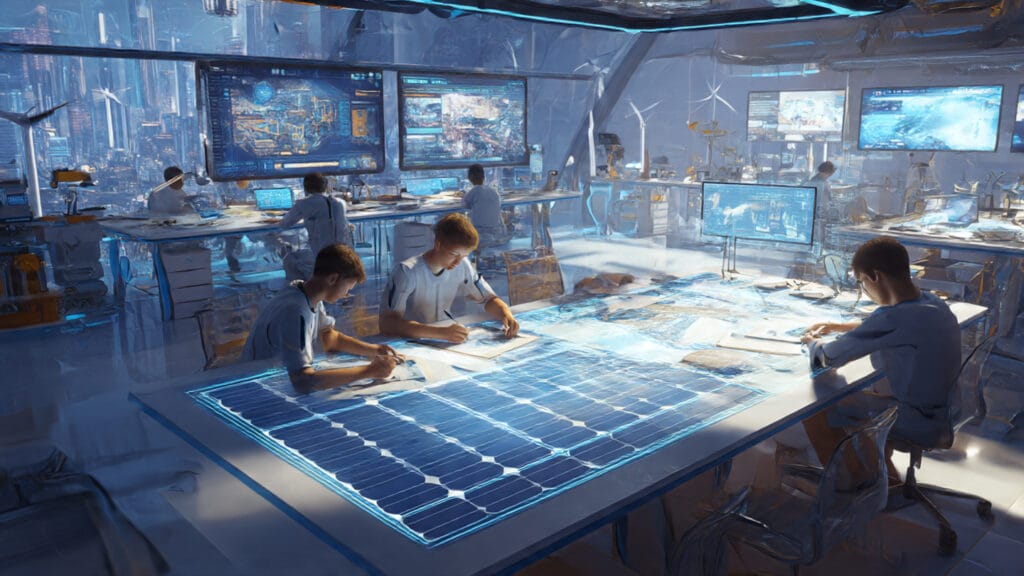Engineering is one of the most impactful and future-focused professions in the world. As we enter the year 2025, industries everywhere—from renewable energy to smart infrastructure—are undergoing massive transformations. This shift has brought engineering to the center stage, creating exciting new career opportunities for students and young professionals.
Whether you’re planning to pursue civil engineering, mechanical engineering, electrical engineering, or any other engineering specialty, understanding the modern landscape is essential. The engineering field is no longer limited to traditional design and construction. Today’s engineers contribute to renewable energy systems, automation, urban planning, sustainability, artificial intelligence, and more.
This comprehensive guide explores the skills required in 2025, the challenges engineering students face, and how they can build strong professional pathways—especially in emerging sectors like solar energy.
Is Engineering Really Hard in 2025?
A common question that students still ask is: “Is engineering hard?”
The reality is that engineering is challenging—especially fields like civil engineering. Anyone considering the discipline should explore Is Civil Engineering Hard? to get a deep understanding of what students actually experience in terms of academic pressure, technical complexity, and real-world responsibilities.
You can read a complete breakdown here:
👉 Is Civil Engineering Hard?
Civil engineering demands strong analytical skills, mathematical confidence, and deep problem-solving capabilities. Students learn about structural analysis, soil mechanics, transportation systems, building codes, and environmental engineering. The difficulty is real—but so are the rewards.
Engineering pushes students to think critically, innovate, and design solutions that impact millions of people. In return, engineers enjoy high job demand, competitive salaries, and the opportunity to create a meaningful difference in society.
Why Engineering Careers Are Growing Faster Than Ever
2025 is a milestone year in the engineering job market. Several factors are accelerating engineering demand across multiple industries:
1. Global Shift Toward Renewable Energy
Countries worldwide are transitioning away from fossil fuels and investing heavily in solar, wind, and other renewable systems. This shift directly increases demand for engineers who understand energy conversion, solar installation, structural analysis, power distribution, and environmental impacts.
2. Smart Cities & Urbanization
Civil, electrical, and mechanical engineers are needed to design smart city infrastructure. IoT-enabled buildings, renewable-powered grids, intelligent transportation systems—everything requires advanced engineering.
3. Automation & Industry 4.0
Manufacturing industries rely on automation, robotics, artificial intelligence, and machine learning—all of which need engineers to build and maintain these systems.
4. Climate Change Adaptation
From flood-resistant structures to wildfire-safe buildings, engineering plays a critical role in climate resilience.
5. Technological Innovation in Everyday Life
New gadgets, machines, vehicles, home systems, and industrial tools all require sophisticated engineering design and testing.
Key Skills Engineering Students Need in 2025
The engineering profession has evolved. In addition to traditional skills, today’s engineers must master new tools, technologies, and soft skills.
1. Strong Mathematical & Analytical Skills
Engineering relies on:
- Calculus
- Physics
- Structural analysis
- Electrical circuit design
- Materials science
These foundational skills remain essential.
2. Proficiency in Modern Tools
Students must understand:
- CAD software (AutoCAD, SolidWorks)
- Simulation systems
- AI-assisted design tools
- MATLAB, Python
- Renewable energy modeling platforms
These tools make engineers faster, more accurate, and more competitive.
3. Renewable Energy Knowledge
In 2025, renewable energy is not optional—it’s essential. Engineers who understand photovoltaic systems, solar inverters, grid integration, and clean energy design stand out in the job market.
4. Hands-On Practical Experience
Field experience matters more than ever. Engineering students should seek:
- Internships
- Field visits
- Lab experiments
- Real-world project exposure
This helps bridge the gap between theory and practice.
5. Effective Communication Skills
Engineers must explain complex concepts to clients, teams, and project stakeholders.
Challenges Faced by Engineering Students
Despite the massive opportunities, engineering students in 2025 face real challenges.
1. Heavy Academic Workload
Engineering degrees require managing multiple courses, labs, and projects simultaneously.
2. Technology Evolving Too Fast
Students must constantly update their skills to keep pace with rapid advancements in renewable energy and AI systems.
3. Competitive Job Market
While demand is high, top engineering roles require specialization and practical competence.
4. Limited Real-World Exposure
Many students struggle with applying classroom knowledge to real engineering sites and systems.
Why Renewable Energy Is Becoming a Core Part of Engineering Careers
One of the most exciting engineering pathways today is renewable energy—especially solar energy. Solar power has opened thousands of technical, analytical, and field-based engineering roles in 2025.
Solar projects require engineers from multiple disciplines:
Civil Engineers:
- Structural evaluation for solar panel installations
- Roof load assessment
- Designing mounting systems
- Ensuring compliance with building codes
Mechanical Engineers:
- Designing solar mounting mechanisms
- Working on solar trackers
- Improving system efficiency
Electrical Engineers:
- Handling wiring, grounding, and inverter systems
- Connecting solar systems to the main grid
- Ensuring adherence to safety codes
This makes solar energy one of the most engineering-heavy industries in the world.
Maryland: A Major Solar Engineering Hub
Maryland has emerged as a booming market for solar installation, engineering opportunities, and clean energy adoption. Students and new engineers can learn a lot by exploring real-world solar projects in the state.
Homeowners and businesses rely on trusted providers offering Solar Installation Services in Maryland for energy savings and clean power integration. Learn more here:
👉 Solar Installation Services in Maryland
Gaithersburg is another fast-growing solar location with high demand for engineers and installers. For details, visit:
👉 Solar Installation Services in Gaithersburg, Maryland
These links give students insights into real solar systems, installation requirements, and engineering involvement.
How Engineering Students Can Build Strong Career Pathways in 2025
1. Choose the Right Specialization
Pick a field aligned with your strengths:
- Civil
- Mechanical
- Electrical
- Industrial
- Renewable energy engineering
2. Gain Certifications
Short courses in:
- Solar energy
- Project management
- Energy auditing
- AutoCAD
- Engineering software tools
boost hiring chances.
3. Build a Professional Portfolio
Showcase:
- University projects
- Solar system designs
- Case studies
- Internship work
- Research papers
4. Seek Internships in Renewable Energy
Even a 3-month internship can transform your resume.
5. Stay Updated With New Technologies
Engineering evolves fast—continuous learning is mandatory.
Final Thoughts
Engineering in 2025 is full of opportunities. From smart cities to renewable energy systems, modern engineers play a critical role in shaping the future. While disciplines like civil engineering can be challenging, the rewards—job security, high income, and meaningful impact—make the journey worth it.
Whether you’re studying engineering or planning to enter the field, embrace the innovations happening across industries. Renewable energy, especially solar power, is opening doors for engineers like never before. With the right skills, experience, and mindset, you can build a powerful, future-ready engineering career.


